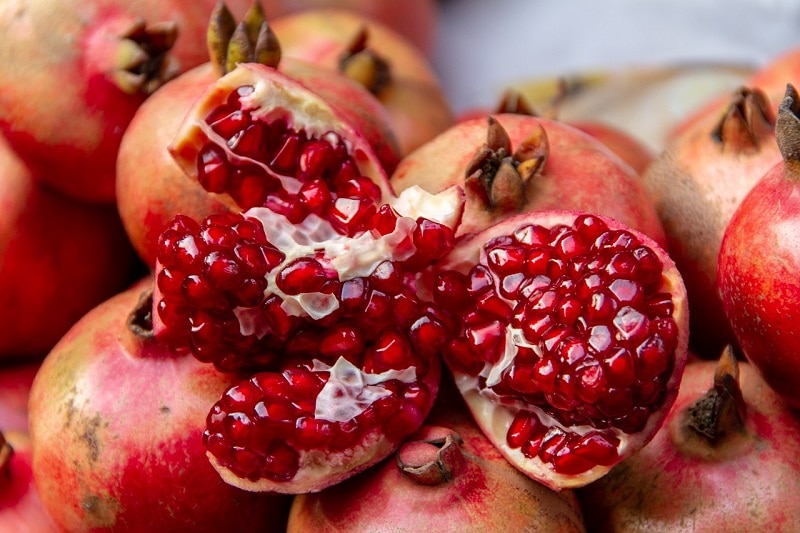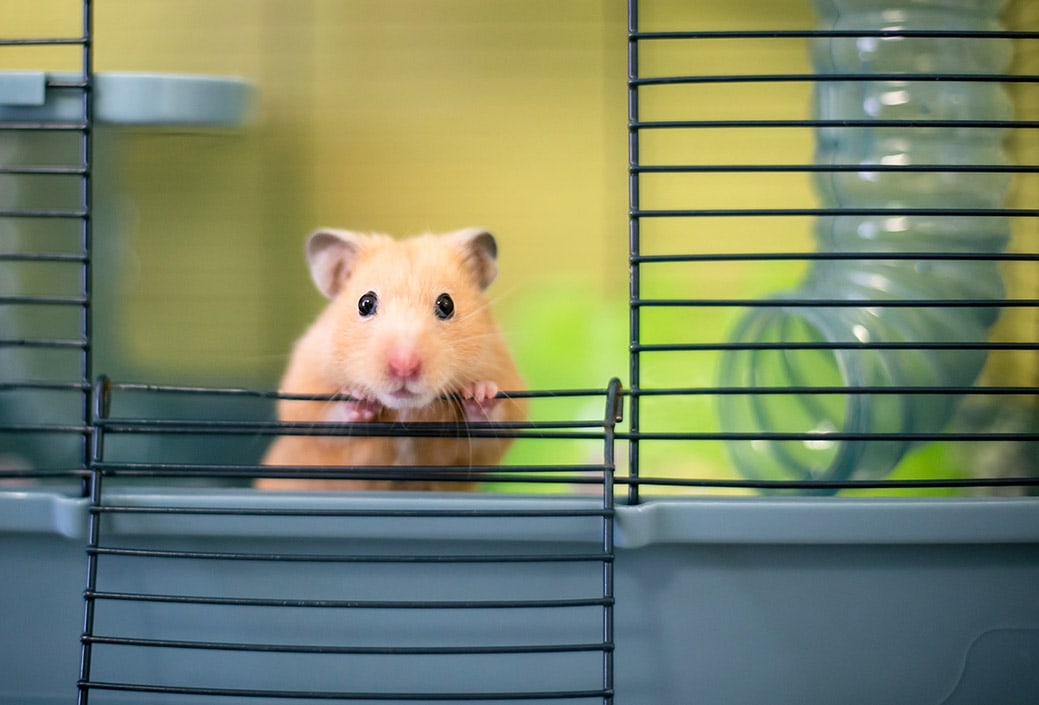
Hamsters have a hearty appetite for various foods, but fruits seem to be one of their favorites. Most hamsters will never turn down a sweet and tasty fruit, even if it is not that good for them to eat.
Pomegranate is a type of berry that has hundreds of edible seeds (arils) known for their sweet, yet slightly tart taste. Although pomegranate is high in essential vitamins and minerals, hamster owners might want to think twice before feeding this fruit. Pomegranates are high in organic acids, making them a less ideal fruit for hamsters to eat.
What Should Hamsters Eat?
As omnivorous rodents, hamsters enjoy eating a varied diet containing different plant and animal-based ingredients. They should be getting around 70% of their nutrient intake from a commercial diet that has been specially formulated for hamsters. 20% of their diet can be made up of fresh vegetables, hay and some proteins like mealworms or boiled egg. The final 10% is for treats, such as fresh fruit, seeds or nuts.
Although fruits seem like a healthy snack or treat, they are generally very high in sugar, which is why they should only be fed in very small quantities to your tiny hamster pal.

Is Pomegranate Safe?
The seeds and skin of the pomegranate are not known to have any toxic properties that would make them unsafe for hamsters to eat. Therefore, your hamster is unlikely to die or fall seriously ill if they ate a few pomegranate seeds. Despite pomegranates being non-toxic for hamsters to eat, it still doesn’t make the fruit good for them to eat regularly.
Why Should You Avoid Feeding It?
Pomegranates are relatively high in sugar, fructose, and water which might be difficult for your hamster to digest. This is why some hamsters may experience a bout of diarrhea and digestive upset after eating pomegranate seeds. Keep in mind that diarrhea puts your hamster at risk of dehydration, so monitor your hamster for signs of diarrhea a few hours after they eat pomegranate.
The juice of the fruit is high in organic acids such as oxalic, punicic, citric, and malic acid, which are not good for hamsters to ingest. Those acids can be irritating to your hamster’s mouth and may erode their tooth enamel over time. Hamsters should not be eating highly acidic fruits like lemon, grapefruit, pomegranates, and limes because they may cause digestive upset.

Health Benefits
One of the main reasons you might have planned to feed pomegranate to your hamster is because of the fruit’s potential health benefits and nutritional value.
Nutritional Value of 0.5 cup (87 grams) of pomegranate:
| Water: | 67.8 grams (g) |
| Carbohydrates: | 16.3 g |
| Fiber: | 3.48 g |
| Vitamin C: | 8.87 milligrams (mg) |
| Vitamin E: | 0.522 mg |
| Potassium: | 205 mg |
| Zinc: | 0.304 mg |
As we can see from the table above, pomegranates are a natural source of essential vitamins, minerals, antioxidants, and insoluble fiber. Although these nutrients are beneficial to hamsters, they should be obtained from their main diet rather than from acidic fruits.
Better and Safer Alternatives
If you want to offer fruit to your hamster as a nutritious snack, there are better and more importantly safer alternatives to pomegranates. Small pieces of apples, bananas, strawberries, and blueberries are among the many fruits safe for hamsters to eat in moderation. Those fruits are also rich in vitamins and minerals, but lower in organic acids than pomegranates.
In Conclusion
Pomegranates might be non-toxic for hamsters to eat, but they are not recommended to feed considering there are better alternatives. Much like citrus fruits, which should also be avoided when feeding your hamster, pomegranates are very acidic. As they are not essential to your hamster’s health, we would recommend choosing from one of the many hamster-safe fruit options out there, and keep that pomegranate for yourself.
Featured Image Credit: Peggy_Marco, Pixabay









